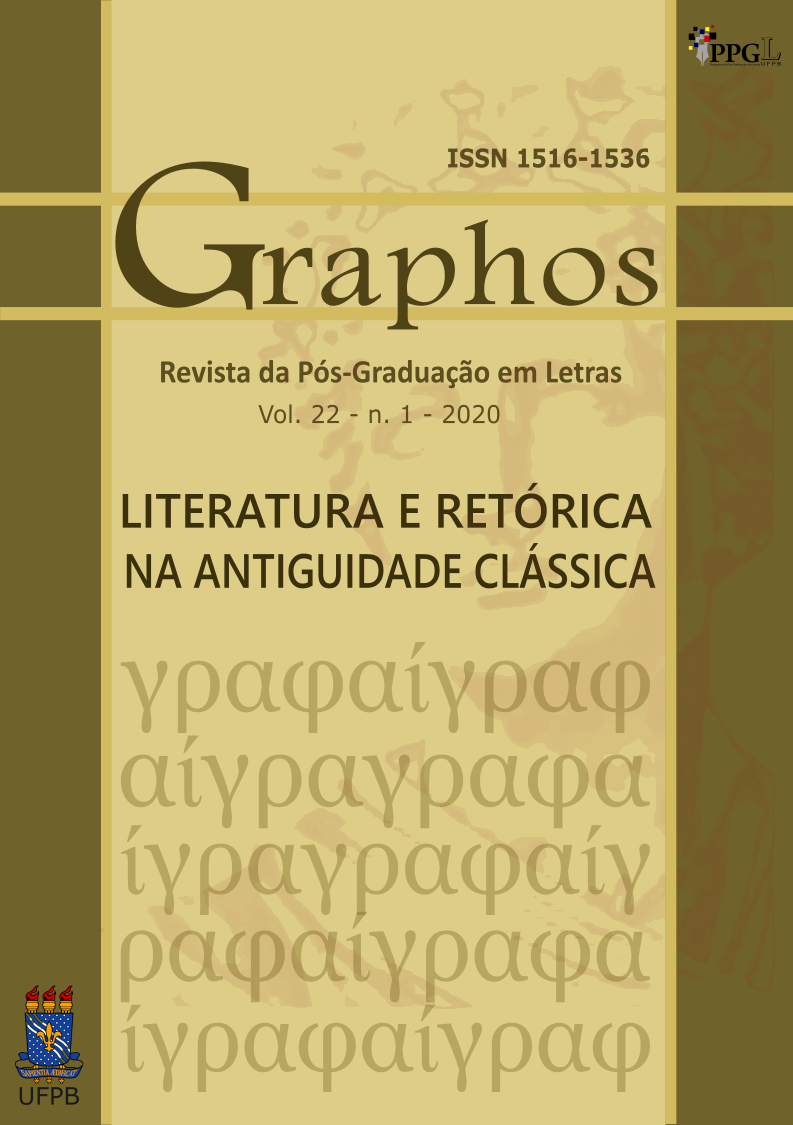Vol. 22 No. 1 (2020): Literature and Rhetoric in Classical Antiquity

In classical Greco-Roman antiquity, there is nothing expressed to justify a literary rhetoric or a rhetorical literature. If for rhetoric, through its discursive genres, the subject matter is well developed in terms of manuals, for literature they are scarce. The very term literature can be seen as anachronistic. Aristotle was already addressing the problem of a certain unnamed art (ἀνώνυμος, Poetics, 1447b9). Although rhetoric enjoyed a reputation not only among the Greeks, but also among the Romans, one must also admit that literature was already the object of criticism. The Platonic Republic, as well as the Aristotelian Poetics and Politics, are examples of a well-developed literary consciousness with regard to its object. The complexity of this criticism is reflected above all in the term used by the Greeks ποίησις, which covers not only the production of what we nowadays understand as poetry, but also other arts such as painting, for example. There does not seem to be a well-defined boundary even between the arts, since Aristotle himself uses painters in his comparisons with the poets; nor even between the types of poetry, notwithstanding the attempts at delimitation that were carried out by the philosophers above. On the other hand, it is undeniable that quotations from poets are found in Aristotle's Rhetoric in abundant form. The dialogue between the two spheres was already taking place by means of the examples cited. However, it is perhaps in the period of Roman rhetoric, with Quintilian, that some awareness between the shifting boundaries of literature and rhetoric was first evidenced in a concise manner. In his book X, of the Institution Oratory, he provides us with Theophrastus' opinion that "orators avail themselves much of the lesson of the poets" [Plurimum dicit confere Theophrastus lectionem poetarum, 27], "and from them they seek inspiration in things, elevation in words, all movement in affections, and expediency in characters [. .. ab his in rebus spiritus et in verbis sublimites et in adfectibus motus omnis et in personis decor petitur, 27]. He does not, however, fail to suggest a certain prudence to the speaker, since "poets are not to be followed by the speaker in everything, neither in the freedom of words nor in the excess of figures" [non per omnia poetas esse oratori sequendos nec libertate verborum nec licentia figurarum, 28]. It is clear that the problem is posed from the perspective of the border between Literature and Rhetoric. A border that wants to be mobile, without precise delimitation, changing. Facing this panorama, we propose as dossier the theme "Literature and Rhetoric in Classical Antiquity", with the intention of further promoting the encounter between these two regions. Finally, we urge contributors to understand the copulative "and" in the name of the dossier as a place par excellence between these demarcations. Organizers: Marco Valério Colonnelli (PPGL/UFPB) and Ticiano Curvelo Estrela de Lacerda (UFRJ)
This issue was supported by the Research Support Foundation (FAPESQ), Grant Term No. 045/2019.







